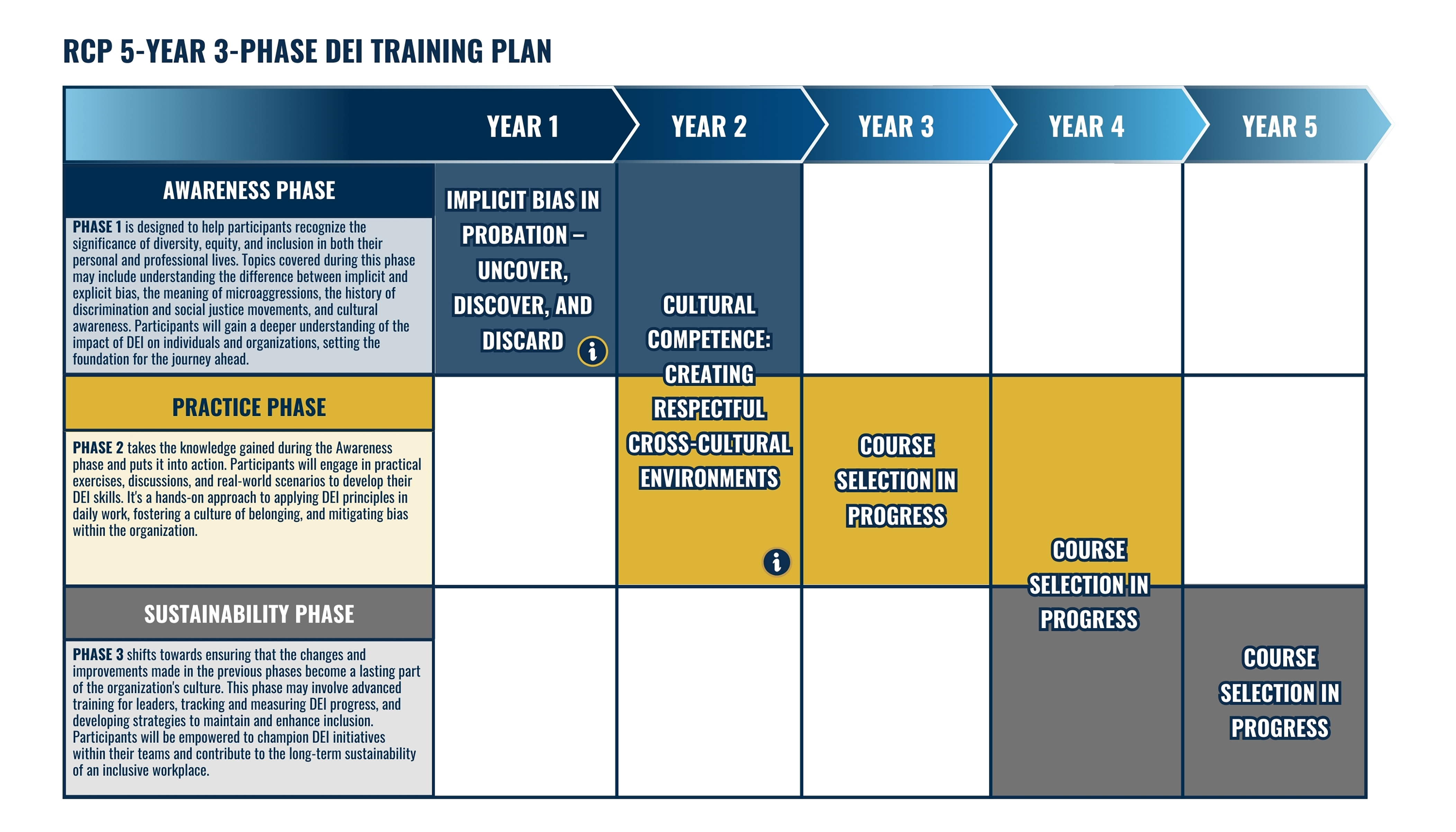Definitions
Training
The DEI project has placed significant emphasis on training programs aimed at raising awareness, fostering a fundamental understanding, enhancing cultural competence, providing equitable services, and cultivating an inclusive workplace culture. As of FY 22-23, all sworn staff are required to complete a minimum of four (4) hours of DEI training annually. This requirement prompted the development of a 5-year training plan by RCP, covering 3-phases of Awareness, Practice, and Sustainability. The goal is to equip staff with the necessary tools to apply these principles not only in their professional roles but also in their everyday lives.

The course chosen for Year 2, titled 'Cultural Competence: Creating Respectful Cross-Cultural Environments,' has received overwhelmingly positive feedback from participating staff members, reflecting promising mid-year results. Explore the comments and experiences shared by them below.

